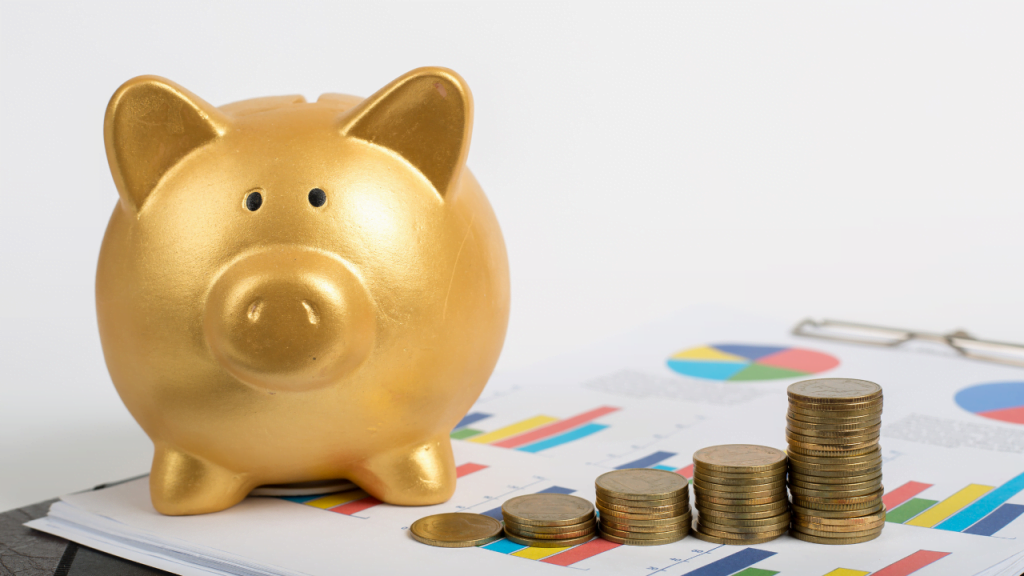If you are having trouble managing your finances, you should first examine your spending habits. You should make a budget if you don’t already have one and then track your spending to see where it lines up with your budget.
This will give you an idea of your current spending habits and what you can do to improve them. Once you have a better idea of how much you can afford to spend each month, you can increase your savings, pay off debt, and invest based on your financial goals. Read on to understand how to improve and manage your finances.

How to Improve and Manage Your Finances
Table of Contents
ToggleBudgeting
Managing your finances wisely begins with taking an inventory of your spending habits and figuring out your income and expenses. Not budgeting will leave you winging it each month, hoping you can afford to keep the lights on and food on the table. It’s also the fastest way to build up debt and avoid overspending. By creating a budget, you’ll be able to stay on track and control your spending.
Budgeting is an important step in money management because it helps you control your money and achieve your financial goals. Although it might sound like a lot of work, this process can be very effective. By estimating how much money you need to spend each month, you’ll be able to manage your finances more effectively and achieve your goals.
By following the 50/30/20 rule, you’ll be able to create a budget that meets your goals and saves you money. This rule enables you to separate your monthly expenses into three major categories: necessities, wants, and savings. Each category represents a different portion of your budget, so you can adjust your budget accordingly.
Managing your money can be difficult at first, but with the right tools, it can be easy and rewarding. The first step is to evaluate your spending habits. If you haven’t made a budget yet, start one. Once you’ve set up a budget, track your spending to see how it compares to your goal. By reducing unnecessary expenses, you can save as much as $240 a year.
How to Improve and Manage Your Finances

Creating a financial plan
To begin, you must create a financial goal. This can be anything from building wealth to saving for a big purchase. It should reflect your values and not simply be based on what your peers are buying. It can also include a particular amount of debt that you would like to pay off.
To create a financial plan, you must ask yourself big questions. For instance, what are your values in life? These are important questions that will help you make the right decision regarding your finances. The larger questions will serve as the framework for your financial plan.
Your financial plan should also include a goal to own a home. Not only is homeownership a sense of achievement, but it also helps build equity. However, this is an expensive endeavor and an investment that should be carefully considered. Consequently, many people put off purchasing a home. One common reason is student loan debt. Another reason may be stringent mortgage requirements.
How to Improve and Manage Your Finances

Saving for the short term
Investing in short-term investments is a great way to build up your savings and have money on hand when you need it. While some types of investments are risky, you can often earn a higher return than you would with a traditional savings account.
For example, you can open an account with an online lender and earn interest on your deposits without risking your principal. Some online lenders offer accounts that pay 12 times the national average and require no minimum balance.
Saving for the short term means setting aside money for upcoming expenses and goals. This does not mean cutting out certain items from your budget. Rather, it means making small changes to several categories. Whether it’s lowering your thermostat or unplugging appliances, making a small change each month will add up to big savings over time.
Another good short-term goal is paying off your debt. Having too much debt is one of the leading causes of financial problems. Credit card debt is particularly high-interest and can be crippling to your finances. By paying off your credit cards, you will free up a considerable amount of cash. Another excellent short-term financial goal is paying off an automobile loan.
In an uncertain economy, it is important to take charge of your finances. Having a healthy savings account will make you feel more secure and less likely to panic. Having a small emergency fund on hand can help you deal with unexpected financial problems, such as a job loss, disability, car breakdown, or a sick child or pet. Having a healthy savings account will provide you with a financial “backstop” for life’s uncertainties and will provide a foundation for more productive investments.
When it comes to investments, short-term investments have lower investment returns, but they’re better for your finances. Short-term investments also require a lower level of risk. Therefore, you can sleep better at night knowing you won’t lose your money if you don’t meet your goal. By setting short-term goals, you’ll be able to plan ahead for emergencies and other unexpected expenses.
How to Improve and Manage Your Finances

Having a positive financial mindset
Having a positive financial mindset is vital for the management of your finances. This is because an optimistic mindset leads to more productive behaviors and a better relationship with money. For instance, an optimistic mindset will lead to spending less than you earn and avoiding debt. If you spend less than you earn, you are more likely to achieve your financial goals.
The first step in developing a positive money mindset is to release limiting beliefs. You may believe that you can’t do something because you don’t have the money, but this isn’t the case. Limiting beliefs limit your options and will only keep you from achieving your goals.
A positive financial mindset allows you to take on new challenges and take risks. You will experience growth and success when you push yourself outside of your comfort zone. By learning new things about money management, you’ll increase your knowledge and expand your perspective. Learning is free and will open new doors for you.
When you associate money with negative feelings, you will feel anxious and stressed. You may even lash out at your family members for financial frivolity. A positive money mindset will encourage you to take risks and be generous. This can help you become more responsible with your money.
It is important to cultivate a positive financial mindset by following fin-influencers who share their knowledge and experience. This way, you can learn from people who have overcome similar mistakes and are now able to help you create a better mindset. Ultimately, having a positive money mindset will help you achieve your financial goals.
Another way to improve your financial mindset is to learn to express gratitude. Gratitude leads to more money and more positive choices. In addition, an improved money mindset will help you make better decisions and save more. So, if you’re ready to learn how to manage your finances, start monitoring your spending and saving today! You can download a free money diary today to help you monitor your spending habits and emotions.
Having a positive financial mindset will help you avoid the trap of comparison with others. Comparison robs us of joy. You may have dreams of retiring at a young age and backpacking the world. However, you need to be realistic. If you want to improve your financial mindset, you need to know what you want to accomplish with your money.
How to Improve and Manage Your Finances
Invest In Yourself
The world is full of opportunities. But, in order to take advantage of those opportunities, you have to be willing to invest in yourself. You have to be willing to put in the time and effort to learn new things and to grow as a person.
Only you can decide whether or not you are going to invest in yourself. But, if you want to be successful in life, you have to be willing to make that investment.
There are a lot of different ways to invest in yourself. You can invest in your education, your personal development, your career, or in your relationships. You can also invest in your health. You can make sure that you are eating healthy foods, exercising regularly, and getting enough rest.
All of these things are important investments that you can make in yourself. But, the most important investment that you can make is in your own happiness. You have to be willing to do whatever it takes to make yourself happy. You have to be willing to invest in your own happiness.
If you are not happy with your current situation, you have to be willing to change it. You have to be willing to invest in yourself and in your own happiness. Only you can make the decision to invest in yourself. But, if you want to be successful and happy in life, you have to be willing to make that investment.
How to Improve and Manage Your Finances
Get help
One way to get help is to speak to a financial advisor. A financial advisor can help you understand your financial situation and make a plan to improve it. They can also offer advice on how to save money and make investments.
Another way also is to join a support group. Support groups can provide emotional and practical support. They can also help you connect with other people who are in similar situations. There are also many books and websites that can help you improve your finances. Some of them are listed below.
Books
• The Millionaire Fastlane by MJ DeMarco
• Rich Dad Poor Dad by Robert Kiyosaki
Websites
• Mint.com
• DaveRamsey.com
• CNBC.com
Finally, don’t be afraid to ask for help. There are many people and organizations that can help you improve your financial situation. If you need help, don’t hesitate to reach out. You just need to ask.
How to Improve and Manage Your Finances
How to Improve and Manage Your Finances











